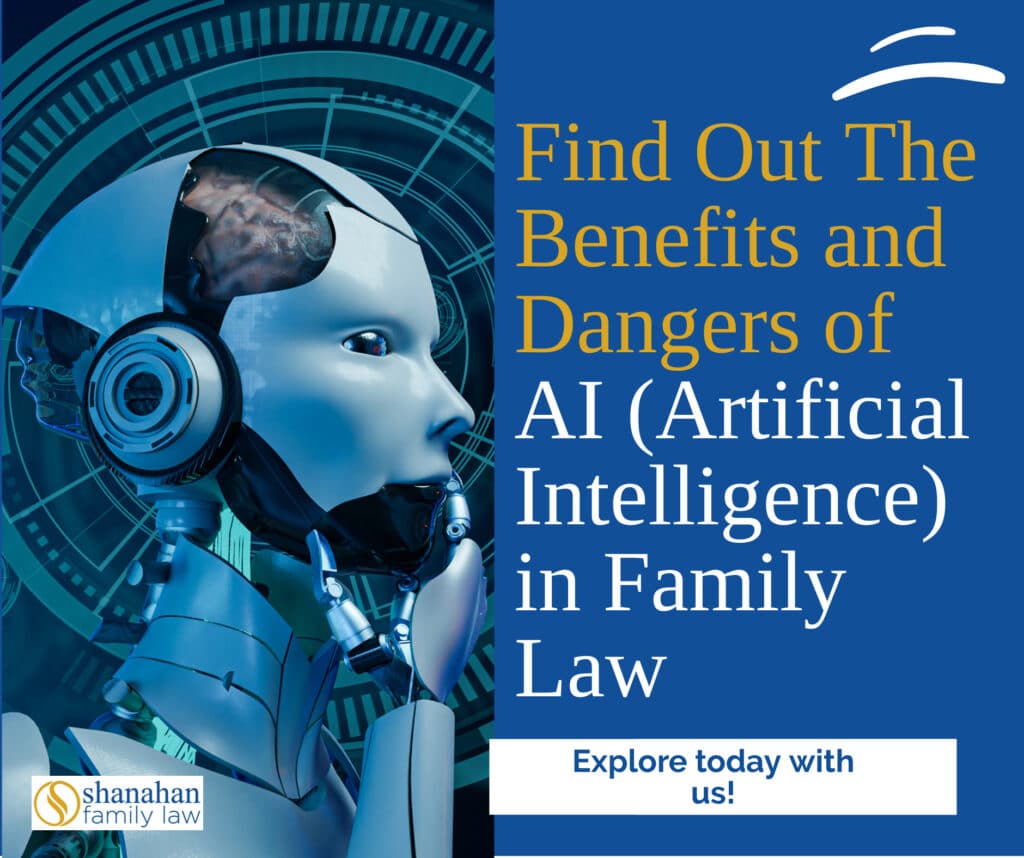The rapid evolution of artificial intelligence (AI) has left no stone unturned, and the legal sector is no exception. Family law is a domain that deals with the most intimate and personal aspects of human relationships. It is now grappling with the implications of AI integration. This article delves into the dangers posed by AI software like ChatGPT. We will look at the potential benefits of such technology and how the family law sector can adapt to these developments.
Key takeaways 
- Family law is grappling with the implications of AI integration, including software like ChatGPT.
- Dangers of AI in family law include loss of human touch, data privacy concerns, and over-reliance on technology.
- The benefits of AI encompass efficiency, predictive analysis, cost-effectiveness, and enhanced research capabilities.
- The family law sector can adapt by offering AI training, drafting ethical guidelines, and adopting a collaborative approach.
- Continuous evaluation is essential to assess the impact of AI on family law processes.
- While AI offers efficiency and cost benefits, challenges like loss of human touch and data privacy remain.
Dangers Posed by AI Software
Loss of Human Touch
Family law deals with the complexities of human relationships. Introducing AI can lead to a loss of the human touch, which is essential in understanding the nuances of family disputes. No matter how advanced, an AI lacks the empathy and emotional intelligence a human lawyer brings.
Data Privacy Concerns
AI software, including ChatGPT, relies on vast amounts of data. There’s a risk that sensitive information related to family disputes could be mishandled or misused. This may lead to breaches of confidentiality.
Over-reliance on Technology
AI can process information quickly. But there’s a danger of over-relying on it without human oversight. This could lead to errors or misjudgments. This is especially critical in cases where context and human intuition are crucial.

Potential Benefits of AI Software
Efficiency and Speed
One of the most significant advantages of AI is the ability to process vast amounts of information rapidly. This can be particularly useful in family law cases needing to sift through large amounts of documentation. This may include extensive financial records or communication logs.
Predictive Analysis
Advanced AI systems can analyse past cases and outcomes to predict potential results for current cases. This can give lawyers insights into how a case might unfold, allowing them to strategise more effectively. For example, some law firms use AI to assess client risk.
Cost-Effective
AI can automate many routine tasks, reducing the hours lawyers must spend on them. This can lead to client cost savings and make legal services more accessible.
Enhanced Research Capabilities
AI can quickly scan and analyse legal databases. This helps lawyers stay updated with the latest precedents and legal developments. Lawyers can ensure they are equipped with up-to-date information when representing their clients.

How can the Family Law Sector Deal with the Development of AI?
Training and Education
Legal institutions and firms must recognise the growing influence of AI. They must offer training programs to familiarise lawyers with this technology. This ensures they can leverage AI tools effectively while being aware of their limitations.
Ethical Guidelines
Legal bodies worldwide should draft ethical guidelines. Guidelines ensure AI use in family law respects client confidentiality and maintains the legal process’s integrity.
Collaborative Approach
Instead of viewing AI as a replacement, the family law sector should see it as a tool that can complement human skills. A collaborative approach allows lawyers to harness AI’s strengths while bringing their unique human perspective to cases.
Ongoing Evaluation
The family law sector must implement metrics to evaluate the impact of AI on its processes. By continuously assessing the benefits and challenges, the industry can make informed decisions about how best to integrate AI.

Conclusion
Integrating AI into family law is a double-edged sword. It offers many benefits like efficiency and cost-effectiveness. But it also poses challenges related to losing the human touch and potential data privacy issues. The family law sector should focus on a proactive approach. This should include training its professionals, drafting ethical guidelines, and continuously evaluating the role of AI. These measures will ensure that the technology is used to uphold the integrity of the legal process. A balanced approach that combines the strengths of both human expertise and AI capabilities will pave the way forward.
Shanahan Family Law is committed to a human-centred approach. With or without AI, our experienced team will ensure you receive the best possible outcome. Contact us today for an initial free discovery call.

